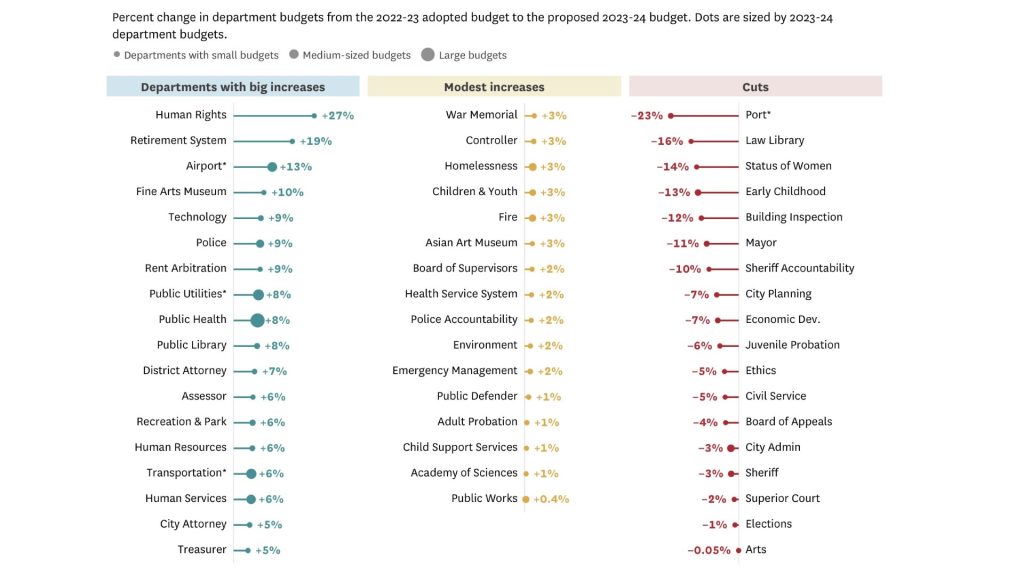San Francisco’s criminal justice system is grappling with a multifaceted crisis, characterized by a significant imbalance in resource allocation, challenges in monitoring pretrial diversion and electronic monitoring, and the persistent issue of outstanding warrants. A critical element that exacerbates this problem is the Mayor’s apparent failure to adequately fund the Sheriff’s Office, which is tasked with managing these critical aspects of the criminal justice system. This article delves deeper into these issues, highlighting the impacts of inadequate funding on the functioning of the system.
A Strain on Sheriff’s Office Resources
San Francisco’s Sheriff’s Office plays a pivotal role in overseeing pretrial diversion programs, electronic monitoring, and the apprehension of individuals with outstanding warrants. However, the Sheriff’s Office has been grappling with resource shortages that severely hamper its effectiveness.
Electronic Monitoring Oversight
Perhaps one of the most glaring issues is the overwhelming caseload faced by a mere one to two deputy sheriffs per shift responsible for monitoring 500 individuals on electronic ankle monitoring. This stark imbalance between the number of offenders and the personnel assigned to oversee them has several consequences:
- Inadequate supervision: The limited number of personnel makes it exceedingly difficult to ensure effective supervision and compliance with the terms of electronic monitoring. This raises concerns about the potential for offenders to exploit these conditions or reoffend without proper oversight.
- Rehabilitation and reintegration: The objective of electronic monitoring programs, which is to support rehabilitation and successful reintegration into society, becomes questionable when the sheer caseload makes individualized attention and support nearly impossible.
The Overburdened Warrants Service Unit
The Warrants Service Unit, tasked with actively seeking out and apprehending individuals with outstanding warrants, operates with just five deputies. The implications of this understaffing are far-reaching:
- Limited apprehension capacity: With a minimal workforce, the unit struggles to locate and arrest individuals with outstanding warrants in a timely manner. This undermines the credibility and effectiveness of the criminal justice system.
- Accumulating warrants: The challenges faced by the Warrants Service Unit contribute to the mounting number of outstanding warrants, leaving many individuals unaccounted for and the public at risk.
Mayor’s Failure to Fund

It is imperative to address the core issue: the Mayor’s apparent failure to allocate adequate funding to the Sheriff’s Office. This funding deficiency exacerbates the problems within the criminal justice system, resulting in an imbalanced workload for deputies, an ever-increasing number of outstanding warrants, and the erosion of public trust.
The implications of this funding shortfall are clear:
- Reduced public safety: Inadequate funding of the Sheriff’s Office directly impacts the safety of San Francisco’s residents. Insufficient resources hinder the effective supervision and apprehension of offenders.
- Strain on law enforcement: Deputies are faced with insurmountable caseloads, making it nearly impossible for them to fulfill their responsibilities effectively. This, in turn, affects the quality of rehabilitation programs and the timely apprehension of individuals with outstanding warrants.
San Francisco’s criminal justice system grapples with severe challenges, primarily due to the lack of funding for the Sheriff’s Office. The Mayor’s failure to address this issue has far-reaching consequences, leading to imbalanced workloads, a growing number of outstanding warrants, and a loss of public trust. Addressing this problem requires a fundamental reevaluation of resource allocation and a commitment to bolstering the Sheriff’s Office’s capabilities. It is crucial to bridge this funding gap to ensure that the criminal justice system can meet its core objectives while safeguarding the interests of the community.
